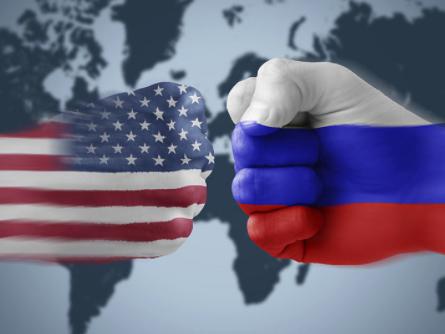US ignores Putin's threats, boosts support for Ukraine

In rallying global arms supplies and asking Congress for $33 billion more to support Ukraine, Washington is choosing to ignore Vladimir Putin's threats to use nuclear arms, and instead is openly testing the Russian leader's limits.
After the United States brought 40 countries to a US base in Germany last week to discuss aid for Ukraine's war with Russia, Putin on Wednesday threatened a "lightning fast" response if there is any direct intervention by outsiders on Kyiv's behalf.
"We have all the tools for this, that no one else can boast of having. We won't boast about it: we'll use them, if needed," Putin said.
It was a thinly veiled reference to Russia's tactical nuclear weapons, which Russian military doctrine holds can be used to force an adversary to retreat.
Rather than pull back at that threat to unleash Moscow's nuclear bombs, US President Joe Biden doubled down on US support for Ukraine.
The $33 billion he requested includes $20 billion for arms and munitions, nearly seven times the amount sent to the country since the Russians invaded on February 24.
No longer hiding support
Early in the war Washington worried that aggressively equipping Ukraine's army with anything but "defensive" weaponry risked embroiling the US and NATO in a direct conflict with Russia.
Now, the Pentagon has shed those earlier inhibitions and is shipping offensive weapons like heavy artillery, helicopters and attack drones.
Rather than hiding it, the Pentagon also began openly talking this week about how it is training Ukrainian troops, including inside Germany, to use the weapons they are receiving.
And instead of saying, as it did in February, that it wants only to help Ukraine survive, Washington now says its goal in the war is to debilitate Russia for the long term.
"We want to see Russia weakened to the degree that it can't do the kinds of things that it has done in invading Ukraine," US Secretary of Defense Lloyd Austin said after a visit to Kyiv last week.
Shrugging off Moscow's threat
Inside the US government, Putin's nuclear threat is being shrugged off.
Biden and his top officials have labeled Moscow's nuclear threats "irresponsible."
"It shows the desperation that Russia is feeling about their abject failure in being able to do what they set out to do" in Ukraine, Biden said Wednesday.
On Friday, a senior US defense official said that even as the Pentagon constantly monitor's Russia's nuclear force, "We do not assess that there is a threat of the use of nuclear weapons and no threat to NATO territory."
Lawrence Freedman, professor emeritus at King's College in London, said there are no signs that Russia is preparing to use its nuclear or chemical weapons in the Ukraine conflict.
"Its threats are taken less seriously than before and it has nothing positive to offer. It is already a diminished power," Freedman wrote on his blog.
That view was echoed by Gideon Rose of the Council on Foreign Relations in New York.
"Moscow will not use nuclear weapons during the conflict," said Rose.
Putin "knows that extraordinary retaliation and universal opprobrium would follow, with no remotely comparable strategic upsides to justify them," he said.
Even if Biden has repeatedly said that US troops will not get directly involved in Ukraine, the surge in support has turned the conflict into a proxy war, Sam Winter-Levy, a warfare specialist at Princeton University, wrote on the website "War on the Rocks."
"The West needs to be clear-eyed about the situation it confronts. It is currently waging a proxy war with Russia -- one that poses very real risks of escalation," he wrote.
Nevertheless, he said the current path "may still be the best option."
"Ultimately, the only options worse than a proxy war are a cheap Russian victory in Ukraine — or a direct confrontation between Russia and the United States," he said. —Agence France-Presse




